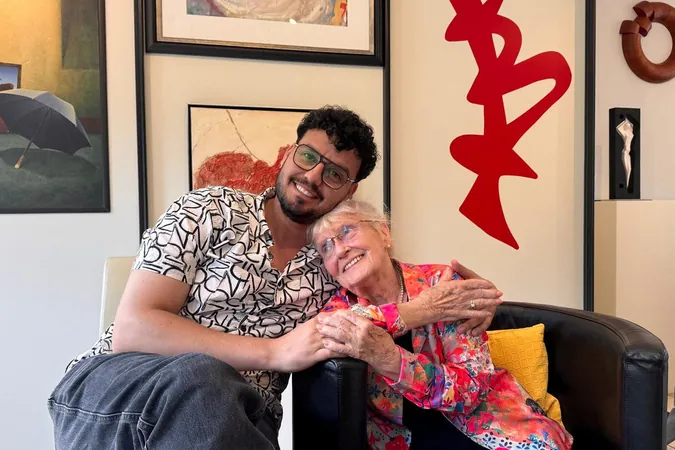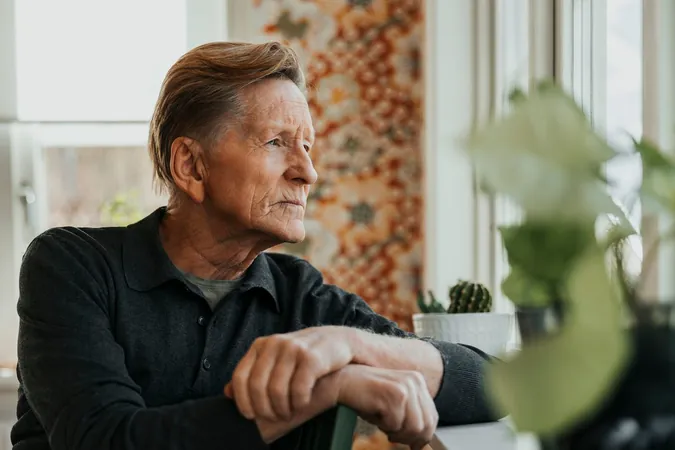
Altena: A German Town's Mixed Migration Experience
2025-09-01
Author: Arjun
A Bold Move in 2015
In 2015, during a historic surge of over a million migrants to Germany, Altena—a small industrial town—took a bold step, volunteering to welcome 100 additional migrants beyond the government’s quota. This initiative aimed to breathe new life into a town struggling with economic decline and shrinking population.
Initial Benefits and Challenges
Local officials spotlighted the advantages of migration: many newcomers found homes and began contributing to the economy. However, some migrants left for larger cities with more job opportunities, while others faced hurdles like language barriers, resulting in increased welfare costs in a town already burdened by an aging demographic.
Growing Frustrations
As living costs soared and public resources began to strain, discontent grew among some residents. The increase in refugee numbers prompted a rise in support for the anti-immigration Alternative for Germany (AfD) party, which capitalized on public dissatisfaction. Officials noted, "The glass is half full and half empty"—some refugees thrived, but social cohesion lagged.
Altena's Historical Background
Once a thriving industrial hub and the birthplace of wire production, Altena has seen better days. After a decline in local ironworks, the town lost a third of its jobs by the mid-2010s. By 2015, its population had dwindled to around 17,000, significantly down from the 70s.
A Community Approach to Integration
When Altena took in more refugees than allocated, the community rose to the occasion. Residents volunteered as caregivers, helping newcomers adjust through local partnerships and establishing homey atmospheres in shared living spaces. Elderly volunteers, such as 81-year-old Dorothee Isenbeck, played key roles in making refugees feel welcomed.
Success Stories and Ongoing Issues
Among those who stayed is Humam al-Gburi, an Iraqi refugee who found not only a home but also a friend in Ursula Panke, an 85-year-old local. Their bond exemplifies the human connections that foster community. However, rising tensions and incidents of hostility towards migrants have tarnished the overall sentiment, evidenced by a local arson attack targeting a refugee housing.
The Political Landscape Shifts
The political climate surrounding migration has shifted notably. With economic challenges looming—rising inflation and job losses exacerbated by an influx of newcomers—dissatisfaction escalated, resulting in the AfD capturing nearly 24% of votes in recent elections, up from 10% just a few years prior.
The Road Ahead for Altena
Despite receiving a federal award for integration efforts in 2017, Altena continues to face demographic and economic challenges. The community remains attractive for its affordable housing, yet the future of migration integration hangs in a delicate balance.
Reflections on Migration Policy
Former mayor Andreas Hollstein, reflective of the town’s journey, maintains that Germany must find a viable path forward. "We can do this," he affirms, acknowledging the inherent challenges while standing firm on the necessity of a humane approach to migration.




 Brasil (PT)
Brasil (PT)
 Canada (EN)
Canada (EN)
 Chile (ES)
Chile (ES)
 Česko (CS)
Česko (CS)
 대한민국 (KO)
대한민국 (KO)
 España (ES)
España (ES)
 France (FR)
France (FR)
 Hong Kong (EN)
Hong Kong (EN)
 Italia (IT)
Italia (IT)
 日本 (JA)
日本 (JA)
 Magyarország (HU)
Magyarország (HU)
 Norge (NO)
Norge (NO)
 Polska (PL)
Polska (PL)
 Schweiz (DE)
Schweiz (DE)
 Singapore (EN)
Singapore (EN)
 Sverige (SV)
Sverige (SV)
 Suomi (FI)
Suomi (FI)
 Türkiye (TR)
Türkiye (TR)
 الإمارات العربية المتحدة (AR)
الإمارات العربية المتحدة (AR)